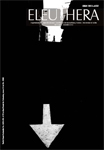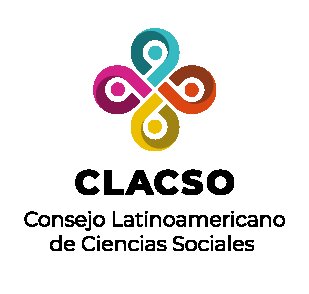Authors
Abstract
Abstract:This work is a preview of the results of research on well rounded education at Universidad de Caldas from the analysis of the significance that professors give to the object of study. Objective: to investigate what well rounded education represents for Universidad de Caldas professors. The methodology was based on a qualitative approach with focal group technique: the work unit, professors from the University, and the analysis unit, written expressions provided by the participants. Among the findings are the well rounded education actors represented by teachers and pupils, teaching staff and disciples, professors and students among others. The setting: the University, a secondary socialization place as an element for human development in the well rounded education process and the behaviors which express its dynamics. The authors highlight the appointment made by some professors about the principles that support Higher Education which must permeate well rounded education such as: non violation and doing things right which correspond to nonmaleficence and beneficence as the universal bioethical principles where the development process means an increase in learning in the students as human beings concerning the physical, the intellectual and the moral. The meaning expressed by the professors go beyond the educational act producing in the students the desirable effects in their education dealing with it as a continuous ongoing process during its educational course at the University.
References
Borrero, A. (2004). Más allá del currículo. Simposio Permanente sobre la Universidad. Conferencia XXIII. Santafé de Bogotá, D.C.
Bourdieu, P. & Passeron J.C. (1979). La reproducción. Elementos para una teoría de la enseñanza. Barcelona: Laia.
De Zubiría, M. (1995). Tratado de Pedagogía Conceptual, formación de valores y actitudes. Santa Fe de Bogotá: Fundación Alberto Merani para el Desarrollo de la Inteligencia.
El Pequeño Larousse Ilustrado. (1999). Diccionario Enciclopédico. Quinta edición. Santafé de Bogotá.
Franco, Z.R. (1999). Desarrollo Humano y de Valores en Salud. Santafé de Bogotá: Procesos editoriales ICFES.
Freire, P. (2002). La educación como práctica de la libertad. 11° edición. Madrid: Editorial Siglo XXI.
Gadamer, H.G. (1977). Verdad y método. Fundamentos de una hermenéutica filosófica. Salamanca: Ediciones Sígueme.
Ley 30 de 1992. Congreso de Colombia. http://www.mineducacion.gov.co/1621/ articles-86437_archivo_pdf.pdf
Orozco, L.. La formación integral. Mito o realidad.
http://mail.ups.edu.ec/universitas/ publicaciones/universitas 10/contenidospdf//laformacionintegral10.pdf
Real Academia Española. Diccionario de la Lengua Española. 22° edición.
http://buscon. rae.es/draeI/SrvltConsulta?TIPO_BUS=3&LEMA=cultura .
Suárez Restrepo, Nelly del Carmen. (2008). Educación. Condición de humanización. Manizales: Editorial Universidad de Caldas.
Tovar, M.C. (2002). “El significado de la formación integral en estudiantes de último semestre de la Facultad de Salud de la Universidad del Valle”. En Colombia Médica, 33(4): 149-155.
Universidad Católica de Córdoba (2008). Jornadas para Docentes. Vicerrectorado de Medio Universitario. En:
http://www.uccor.edu.ar/portalucc/archivos/File/VRMU/Mision_ VRMU/formacionintegral.pdf [Octubre 28 de 2009].
Universidad de Caldas. (2002). Acuerdo 21 de 2002. Título 1. Artículo 5. Consejo Superior.
________. (2009). Plan de Desarrollo 2009-2018. Manizales: Centro Editorial Universidad de Caldas.

 PDF (Español)
PDF (Español)
 FLIP
FLIP

























